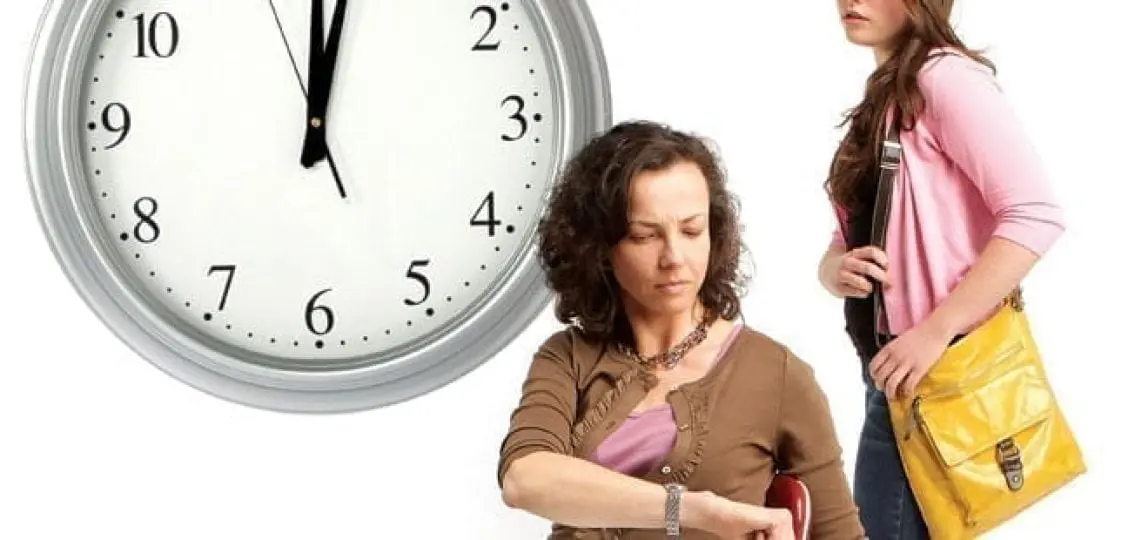One of the biggest dilemmas parents have centers around setting — and enforcing – rules. What should they be? How many should we have? And most importantly, how will our teenagers respond to them. Following are two teens’ reflections on the rules that their parents set for them.

Less is More
by Graham Fine
As far as rules go, I barely have any. My parents understand that I have a good set of moral values and that I won’t do anything crazy. Still, I’m not a completely free spirit.
Most of my rules stem from having my driver’s license. But more importantly, they center on keeping me safe and out of trouble. After getting my driver’s license, I was required to tell my parents where I was, who I was with and when I’d be home. They gave me the standard 11 p.m. curfew. And I knew that if I came home past that time, there would be consequences.
Another rule was making sure I had only one passenger in the car. And I had to keep the music volume low. I have broken these rules. But I know, and my parents know, that I’m not putting my life or my passengers’ lives at risk. No need to worry about the occasional extra passenger or turning up my stereo an extra decibel.
My parents’ permissiveness mostly stems from the fact that I’m the youngest kid in my family.
My older sisters are in college and have already been through the hormonal and defiant high school years. Because my parents already dealt with my sisters, they know how to deal with me. They’re smart about preventing the same behavior in me. They know which rules I will uphold or break, so they more heavily enforce the latter.
The Benefits of Fewer Rules
There’s no point in burying a teenager in rules to the point of suffocation. This only leads to more rebellion and conflict in the parent-child relationship. Over the years, I’ve noticed that my friends with stricter parents tend to have a more strained relationship than those with more lenient parents. Freedom doesn’t equal anarchy. It means giving kids a chance to make their own decisions and deal with the consequences.
When I hear stories about parents spying on their kids or friends getting grounded for stupid reasons, I am thankful for my parents. My parents are not neglectful or uncaring. They are the exact opposite. They were proactive and instilled values and morals in me as a young child. I have them with me to this day. Because of their hard work, I know not to do certain things and to stay out of certain situations.
I’m not saying that a lack of rules for teens works for everyone. But don’t smother your kids with family rules and consequences. Talking through the consequences of their actions has a better chance of keeping your kids out of trouble.
Rules and Responsibility
by Monica Arkin
My parents are very flexible with rules, and as a result, I have developed a strong sense of responsibility. We determine rules through a compromise of my input and their suggestions. They constantly remind me that they trust and respect me and are only concerned for my safety. In return, I strive to maintain that trust by using my judgment and acting responsibly.
My parents’ rules are reasonable and frequently change as I mature. One common discussion topic is car privileges. My driving has caused my parents much distress, which is why most of my limitations are focused around it.
The most stressed rule (other than safe driving) is cell phone use. Under no circumstances will my parents allow me to use my phone while I am driving the car, even if I just need to send a quick text at a red light. They tell me that texting and driving is comparable to drinking and driving. Therefore, I shouldn’t tolerate texting when I am a passenger, either. On multiple occasions, I have asked from the passenger seat for my driving friend to stop texting while we’re on the road.
Another car safety concern is music volume. Until my mom borrowed my car a few weeks ago, I didn’t realize how loud I played my music. She told me that although it may be fun to blast music and sing in the car, I must keep my radio volume low enough so that I can hear ambulances and other cars honking.
The Fight Over Curfew
And finally, our most argued rule: curfew. According to city law, I am allowed to be out until midnight. However, my curfew was 11 p.m. After nine months of intense debating, my parents extended my car curfew to 11:30 p.m. My parents do not monitor the garage to make sure I am back at exactly 11:30 p.m. because they trust me and know that if I return later than expected, it is probably because I had to give someone a ride or got held up for one reason or another.
Because my parents trust me, I do not feel the need to sneak around with the car or make up excuses for being late. I can be honest about where I am and what I’m doing when I have the car.
On issues that don’t concern safety, my parents give me more wiggle room than my friends’ parents. For instance, many of my friends are nagged by their parents to do their homework, work out more, go to bed earlier, or watch less TV. In my house, the general belief is that what my 14-year-old brother and I do is our decision (within general safety parameters). Finishing schoolwork, establishing a healthy bedtime, and exercising are our responsibilities. We can set our own limits on TV and computer, but the moment our grades slip, everything can change.

I am grateful that my parents give me this much leeway in making decisions because I never feel unnecessarily restricted. It’s clear to me that my parents set limitations out of concern for my safety. And I recognize the great amount of trust they invest in me. In the end, my parents’ flexibility has allowed me to grow into the responsible teen they were hoping for all along.




